
Mr. Deeds Goes to Town is a 1936 American comedy-drama romance film directed by Frank Capra and starring Gary Cooper and Jean Arthur in her first featured role. Based on the 1935 short story "Opera Hat" by Clarence Budington Kelland, which appeared in serial form in The American Magazine, the screenplay was written by Robert Riskin in his fifth collaboration with Frank Capra.

George Raft was an American film actor and dancer identified with portrayals of gangsters in crime melodramas of the 1930s and 1940s. A stylish leading man in dozens of movies, Raft is remembered for his gangster roles in Quick Millions (1931) with Spencer Tracy, Scarface (1932) with Paul Muni, Each Dawn I Die (1939) with James Cagney, Invisible Stripes (1939) with Humphrey Bogart, and Billy Wilder's comedy Some Like It Hot (1959) with Marilyn Monroe and Jack Lemmon; and as a dancer in Bolero (1934) with Carole Lombard and a truck driver in They Drive by Night (1940) with Ann Sheridan, Ida Lupino and Bogart.

Stuart Erwin was an American actor of stage, film, and television.
The Our Gang personnel page is a listing of the significant cast and crew from the Our Gang short subjects film series, originally created and produced by Hal Roach which ran in movie theaters from 1922 to 1944.
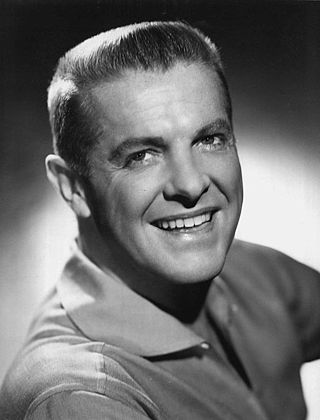
Charles Clarence Robert Orville Cummings was an American film and television actor who appeared in roles in comedy films such as The Devil and Miss Jones (1941) and Princess O'Rourke (1943), and in dramatic films, especially two of Alfred Hitchcock's thrillers, Saboteur (1942) and Dial M for Murder (1954). He received five Primetime Emmy Award nominations, and won the Primetime Emmy Award for Best Actor in a Single Performance in 1955. On February 8, 1960, he received two stars on the Hollywood Walk of Fame for his contributions to the motion picture and television industries, at 6816 Hollywood Boulevard and 1718 Vine Street. He used the stage name Robert Cummings from mid-1935 until the end of 1954 and was credited as Bob Cummings from 1955 until his death.

The Devil and Miss Jones is a 1941 American comedy film directed by Sam Wood and starring Jean Arthur, Robert Cummings, and Charles Coburn. Its plot follows a department store tycoon who goes undercover in one of his Manhattan shops to ferret union organizers, but instead becomes involved in the employees' personal lives.

Joseph Herman Pasternak was a Hungarian-American film producer in Hollywood. Pasternak spent the Hollywood "Golden Age" of musicals at Metro-Goldwyn-Mayer, producing many successful musicals with female singing stars like Deanna Durbin, Kathryn Grayson and Jane Powell, as well as swimmer/bathing beauty Esther Williams' films. He produced Judy Garland's final MGM film, Summer Stock, which was released in 1950, and some of Gene Kelly’s early breakthrough roles. Pasternak worked in the film industry for 45 years, from the later silent era until shortly past the end of the classical Hollywood cinema in the early 1960s.

Gloria Jean was an American actress and singer who starred or co-starred in 26 feature films from 1939 to 1959, and made numerous radio, television, stage, and nightclub appearances. She may be best remembered for her appearance with W. C. Fields in the film Never Give a Sucker an Even Break (1941).
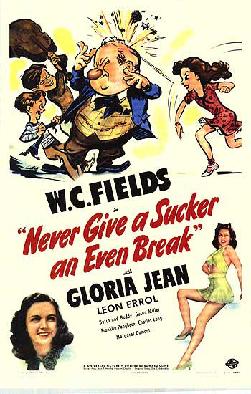
Never Give a Sucker an Even Break is a 1941 American comedy film directed by Edward F. Cline and starring W. C. Fields, Gloria Jean, and Leon Errol. Fields also wrote the original story, under the pseudonym Otis Criblecoblis. Fields plays himself, promoting an extravagant screenplay he has written. As he describes the script to a skeptical producer, the often surreal scenes are shown. It was produced and distributed by Universal Pictures. In some international releases it was known by the alternative title What a Man!
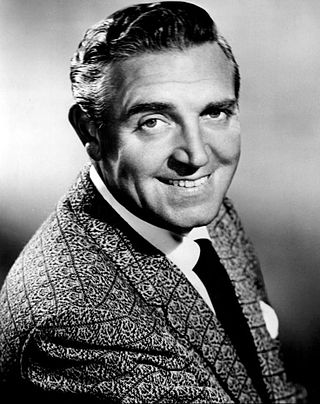
Robert Paige was an American actor and a TV newscaster and political correspondent and Universal Pictures leading man who made 65 films in his lifetime.

Nan Grey was an American film actress.

Princess O'Rourke is a 1943 American romantic comedy film directed and written by Norman Krasna, and starring Olivia de Havilland, Robert Cummings and Charles Coburn. Krasna won the 1944 Oscar for Best Original Screenplay.

Three Smart Girls Grow Up is a 1939 American musical comedy film directed by Henry Koster, written by Felix Jackson and Bruce Manning, and starring Deanna Durbin, Nan Grey, and Helen Parrish. Durbin and Grey reprise their roles from Three Smart Girls, and Parrish replaces Barbara Read in the role of the middle sister. Durbin would reprise her role once more in Hers to Hold.

Mad About Music is a 1938 American musical film directed by Norman Taurog and starring Deanna Durbin, Herbert Marshall, and Gail Patrick. Based on a story by Marcella Burke and Frederick Kohner, the film is about a girl at an exclusive boarding school who invents an exciting father. When her schoolmates doubt his existence, she has to produce him. Mad About Music received Academy Award nominations for Best Art Direction, Best Cinematography, Best Music, and Best Original Story.

It Started with Eve is a 1941 American musical romantic comedy film directed by Henry Koster and starring Deanna Durbin, Robert Cummings, and Charles Laughton. The film received an Oscar nomination for Best Original Music Score. The film is considered by some critics to be Durbin's best film, and the last in which she worked with the producer and director who groomed her for stardom. It Started with Eve was remade in 1964 as I'd Rather Be Rich.

If I Had My Way is a 1940 musical comedy film directed by David Butler and starring Bing Crosby and Gloria Jean. Based on a story by David Butler, the film is about a construction worker who takes charge of the daughter of a friend killed in an accident.
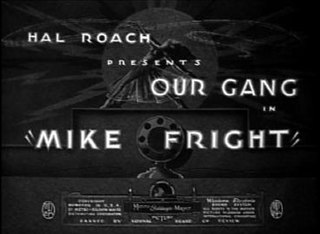
Mike Fright is a 1934 Our Gang short comedy film directed by Gus Meins. It was the 130th Our Gang short to be released.

A Little Bit of Heaven is a 1940 musical film starring teenage soprano singer Gloria Jean.

Temptation is a 1946 American film noir thriller film directed by Irving Pichel and starring Merle Oberon, George Brent, Charles Korvin and Paul Lukas. The film was based on Robert Smythe Hichens's 1909 novel Bella Donna. Other film adaptations of the novel were produced in 1915, 1923 and 1934.
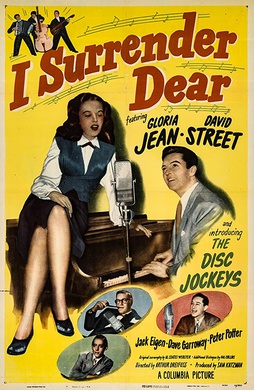
I Surrender Dear is a 1948 American musical film directed by Arthur Dreifuss and starring Gloria Jean. It was the first of two films the singer made for producer Sam Katzman.



















